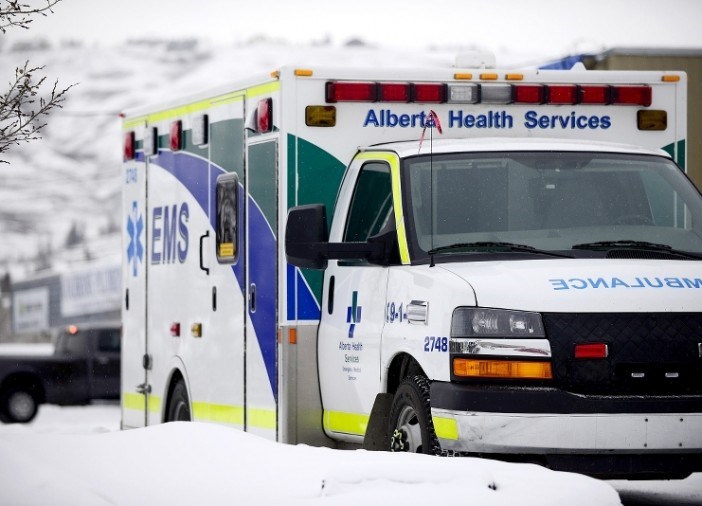COLD LAKE - City of Cold Lake council is raising red flags over ongoing concerns around Emergency Medical Services (EMS) coverage and response times, after Cold Lake Fire-Rescue responded to 21 medical incidents so far in 2025, a number that follows 58 medical-related calls in 2024.
During the April 15 Corporate Priorities Committee meeting, CAO Kevin Nagoya provided a detailed update to council, prompted by concerns from both elected officials and the community.
Council asked for the briefing in light of trends showing prolonged response times and fire services stepping in to fill gaps, sometimes under serious and sensitive circumstances.
Nagoya suggested that administration provide a summary report and include a specific agenda item to allow council to discuss concerns raised by the community and decide on any next steps.
The report, compiled under the leadership of Cold Lake Fire-Rescue Manager Jeff Fallow, aimed to offer a clearer picture of the scope and frequency of EMS-related challenges.
While not every call is a concern, the data showed troubling delays, particularly when EMS units are unavailable or stretched thin, forcing Cold Lake Fire-Rescue to step in.
Among the more concerning cases presented were a series of “medical assist” calls, including a lift assist on April 7 where Cold Lake Fire-Rescue was called to assist with CPR in progress. The issue wasn’t the call itself, but the lack of EMS personnel.
Nagoya explained that due to a staffing shortage, one EMS unit had to leave a scene, and Cold Lake Fire Rescue was asked to drive a second ambulance to the hospital.
Another incident from Jan. 24 highlighted a prolonged EMS delay during a children’s hockey tournament at the Energy Centre.
Nagoya emphasized that delays of over 20 minutes were being tracked, but acknowledged that any extended response, even below that threshold, could be critical.
Nagoya said the issue is made worse by a lack of transparency from Alberta Health Services (AHS), which doesn’t share information as openly as the former Cold Lake Ambulance Society did, leaving Fire Rescue to rely on their own dispatch data and records.
Despite the alarming tone of some examples, Nagoya stressed that not all statistics in the report reflect problematic service.
According to Mayor Craig Copeland, "The bottom line is that the three ambulances that should be stationed in Cold Lake weren’t available. The closest ambulance was in St. Paul, so they had to be called in for assistance."
Nagoya elaborated on staffing challenges, noting, "Cold Lake’s ambulances could have been here, but they are not always fully staffed, and that’s part of the issue. They could be on transfer calls or simply unavailable due to staffing shortages."
Copeland noted that when the changes were first introduced, the health minister assured them that communities like Cold Lake would still have ambulances. However, with the transition to a province-wide service, the situation has changed.
Copeland added that these delays were compounded by a shortage of available ambulances. He noted that Cold Lake, along with other municipalities, has struggled with maintaining consistent ambulance service in the region.
Nagoya shared a tragic example from Jan. 24, where a medical first responder was called to a scene near Highway 55. Although Cold Lake Fire Rescue arrived promptly, an ambulance did not reach the scene until 11:15 a.m., more than 20 minutes after the fire and RCMP teams had arrived.
Tragically, it was later understood that the individual had passed away before the ambulance could attend.
Nagoya also recounted a similar situation from Oct. 21, 2024, when a collision occurred. Emergency services were delayed by an hour, and Cold Lake Fire Rescue had to provide comfort and stabilization until the ambulance arrived.
The staffing and funding issues surrounding EMS in Cold Lake have been longstanding. As Nagoya pointed out, "There is a shortage . . . of EMS workers throughout the province and throughout Canada.”
Nagoya also noted that while Cold Lake Fire Rescue has many staff who are also trained in EMS, there are limitations to their capacity to respond to medical calls. He emphasized that the City is exploring potential solutions, including revisiting the issue of billing for services, a concern that has been raised by other municipalities like Edmonton.
Coun. Chris Vining suggested that a meeting with AHS and local contractors may be necessary to address the issues head-on.
Vining noted the challenges in addressing delays but acknowledged the difficulty in making informed decisions due to insufficient information. He suggested that a report should be generated whenever an ambulance cannot respond, creating a paper trail to explain the cause behind the service unavailability.
Vining also emphasized that the issue isn’t just about generalized service, but about the specific instances when extra staffing is needed.
Coun. Bill Parker suggested a broader conversation, pointing out the importance of understanding which contractors are responsible for specific regions.
"It might be interesting to have some information on a report like this to understand which contractor is actually looking after what region," he said. "Who looks after the Town of Bonnyville, who's looking after Elk Point, who's looking after St. Paul?"
Council accepted the presentation as information, and administration will compile the details to present at a future council meeting.



